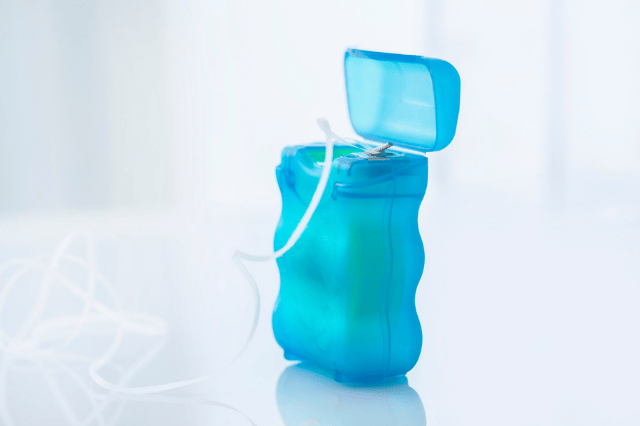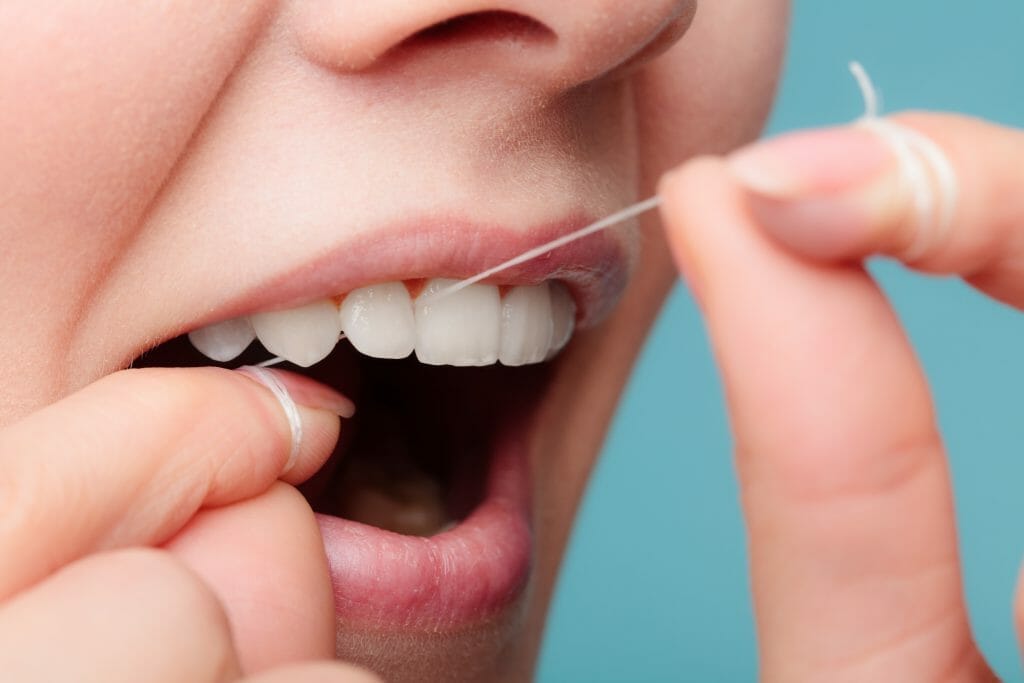
Hi, I'm Kyle Hornby and I'm a Kitchener Dentist. I operate a Dental Clinic that's been a staple in Downtown Kitchener since 1977. Every week I write about 2-3 dental issues and answer commonly asked patient questions to help improve the dental content available to the public. This week, I'd like to discuss whether or not using a Waterpik is a perfect substitute for flossing your teeth.
First, let's briefly touch on what a Waterpik does...
Waterpiks are an irrigating agent. This means that they allow you to aim a stream of water to rinse out different areas. They're most useful for improving the cleanliness of areas that you can't reach with your toothbrush bristles.
Waterpiks work best when you use them in between your teeth.
Why?
Because they can help you to remove extra food and plaque left behind after brushing.
Isn't that basically what flossing does?

Flossing does help to remove debris that your toothbrush bristles can't get to. However, dental floss can also sweep through the contact point (you know, the part that makes a click sound when you pass through it) between neighbouring teeth. A Waterpik can't do that.
But, why does that matter?
Well, there are 2 problems that can arise from letting food and plaque sit between your teeth.
Number 1? Cavities. Cavities develop when plaque sits in that contact point that you "click" through when flossing. That plaque feeds bacteria that cause tooth decay leaving holes in your teeth. If you use a Waterpik in place of flossing, you're setting yourself up for more cavities. Guaranteed.
So, what's problem number 2? When food and plaque sits between teeth around the gum line and in gum pockets, you get inflammation, gingivitis and potentially gum disease. Gum disease (or Periodontitis) is a big problem because it leads to gum recession, jaw bone loss and deeper gum pockets. Waterpiks are great at cleaning around the gums in between your teeth so they'll help you to avoid Gingivitis and gum disease.
So, what's the take home message here?
Ultimately, dental floss can remove plaque from the contact point between teeth AND it can remove plaque and debris from around the gums. It's action is more comprehensive compared to that of a Waterpik. If you had to choose just 1 you'd be best off reaching for your dental floss. Unfortunately, most people prefer using the Waterpik in place of floss.
So, is a Waterpik still worth your time?
Yes. Absolutely. 100%. Oftentimes, you'll need to floss the same location multiple times to remove all debris. If you have gaps between teeth or fillings or deep gum pockets where lots of food get stuck, you'll end up making many trips in with your floss. In these cases, you'll find a Waterpik tremendously useful because a high pressure stream of water will get gum line areas and deep pockets cleaner, faster.
For patients with deep gum pockets and spaces between their teeth, I often recommend that they use a Waterpik and dental floss, in tandem, each and every night. Given that gaps and gum pockets can lead to food impaction and rapid tooth decay, the stakes are high with respect to getting things squeaky clean! Adding a Waterpik to your nighttime routine can help you to avoid the need for dental fillings and other costly work.
What I want you to get from this article, if nothing else, is that a Waterpik is useful but does not achieve as much as does flossing your teeth. A Waterpik can help you to keep your gums clean and avoid Gingivitis as well as Gum Disease but it can't prevent cavities between your teeth the way that flossing can. If you had to choose only 1 tool, you'd be best off going with the floss.
Ultimately, using both tools will give you the best result and this is especially true with patients that get lots of food trapped between teeth and deep down in gum pockets. For them, maintaining a balance consistent with avoiding cavities is more of an uphill climb. Because of that, using both floss and a Waterpik will help them to avoid spending both time and money at the dental office.
Thanks for reading this week. Check in again next week for more useful dental tips!
NOTE: You can read about the American Dental Association's seal of approval for Waterpik Water Flossers here. They note that Waterpiks are effective at removing plaque from interdental gum line areas and from between teeth, however, flossing remains the Gold Standard for preventing cavities between teeth!
By Dr. Kyle Hornby, Dentist in Kitchener, Ontario
Our Dentist Office in Kitchener is conveniently located Downtown. We are a short drive away for families in Waterloo, Breslau & St. Jacobs. Our central location means we truly offer family dentistry near you!
This article is not intended to be a substitute for professional advice, diagnosis, or treatment. Accordingly, always seek the advice of your Dentist or other healthcare providers regarding a dental condition or treatment.
Services
Routine Dentistry & Tooth Repair
Oral Surgery & Tooth Removal
Prosthetic Dentistry & Tooth Replacement
Protective/Preventive Services
Teeth Whitening
Schedule an Appointment Now
